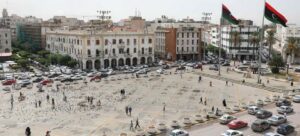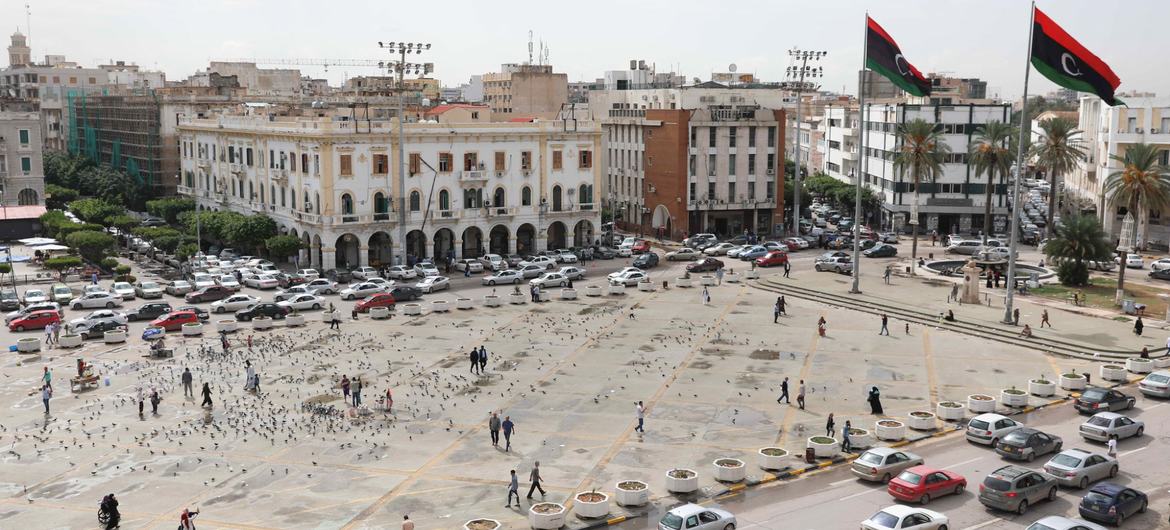Libya: ‘Political deadlock persists with no clear end in sight’- UN envoy

The political stalemate continues in Libya and prospects for elections are dim, the head of the UN Mission there, UNSMIL, said on Monday in his first briefing to the Security Council. Special Representative Abdoulaye Bathily arrived in the country this month and has been prioritizing consultations with political, institutional, security…
The post appeared first on .


The political stalemate continues in Libya and prospects for elections are dim, the head of the UN Mission there, UNSMIL, said on Monday in his first briefing to the Security Council.
Special Representative Abdoulaye Bathily arrived in the country this month and has been prioritizing consultations with political, institutional, security and civil society representatives, in a bid to address these challenges.
“The situation in Libya calls for a consensus State re-legitimation process. Legitimate institutions capable of providing for the basic needs of the people must be established on the basis of a genuine political will. In this process, the conduct of legislative and presidential elections is paramount,” he .
Deadlock and violence
Libya has been divided between two rival administrations for more than a decade, following the overthrow and killing of former leader Muammar Gaddafi in 2011.
The Government of National Accord (GNA) is based in the capital, Tripoli, located in the west, while the rival Libyan National Army (LNA) controls the east.
The signing of a UN-brokered ceasefire in October 2020 paved the way for long-awaited elections in December 2021, which were postponed due to disagreement over the legal basis for the vote.
This past August, deadly clashes between the two sides rocked Tripoli. The crisis was triggered in March, after the eastern parliament selected a new government, however the UN and internationally-backed Prime Minister, refused to stand down.
No end in sight
“The political deadlock persists with no clear end in sight to the prolonged stalemate over the executive,” Mr. Bathily told the Council.
“Further, efforts to resolve the remaining outstanding issues related to the constitutional basis for elections, do not appear to lead to concrete action by the relevant actors, further delaying prospects for the holding of inclusive, free and fair elections aimed at ending the transition and reinstating the legitimacy of institutions.”
Listen to the people
The UN envoy is holding the consultations “to design a response to these daunting political challenges”, and significant differences remain on how Libyans want to overcome the crisis.
“In response to the near unanimous condemnation across the spectrum of the presence of mercenaries, foreign fighters and foreign forces in Libya and the incessant foreign interference in the country’s affairs, I stressed to all my interlocutors that the solution to the crisis must come from inside Libya, on the basis of the will of the Libyan people,” he told the Council.
Mr. Bathily urged Libyan leaders “to hear the people’s aspiration for peace, stability, economic development, and a responsive leadership.”

Stalemate impacting security
Meanwhile, although the ceasefire continues to hold, the political impasse has adversely impacted action on security.
The violent clashes in Tripoli caused a shift in the power balance in the capital, and deepened tensions, resulting in a fragile stability.
“Despite the noticeable decrease in mobilization of armed groups and clashes among them, there are reports of ongoing large-scale recruitment activities,” he reported.
On a positive note, Mr. Bathily said the 5+5 Joint Military Commission (JMC), which brings together representatives from the two sides, will meet next week in Sirte to discuss activities to further ceasefire implementation.
Address human rights
Turning to human rights, the envoy regretted that the situation in the country remains concerning.
Violations against migrants and asylum seekers “continue with impunity” while “arbitrary detention continues as a common practice”, he said.
Mr. Bathily called for the authorities to take immediate measures to address the dire situation of migrants and refugees and to dismantle trafficking and criminal networks.
The Libyan authorities have reported that as of 1 October, nearly 11,000 people, including 55 women, are serving sentences in prisons run by the judicial police.
Justice denied
Furthermore, close to 6,000 people are in pre-trial detention, with 113 women and 135 juveniles among them. Overall, these numbers represent a 40 per cent increase since August.
“Many of those in pre-trial detention, representing a third of the total prison population, are detained with no access to justice. These numbers do not include the approximately 3,243 migrants who are arbitrarily detained in detention centres operated by the Government,” he added.
Mr. Bathily said the Libyan authorities should guarantee due process and a fair trial for people detained on credible charges. He also called for the immediate and unconditional release of all those who are arbitrarily detained.
The post Libya: ‘Political deadlock persists with no clear end in sight’- UN envoy appeared first on HW News English.


